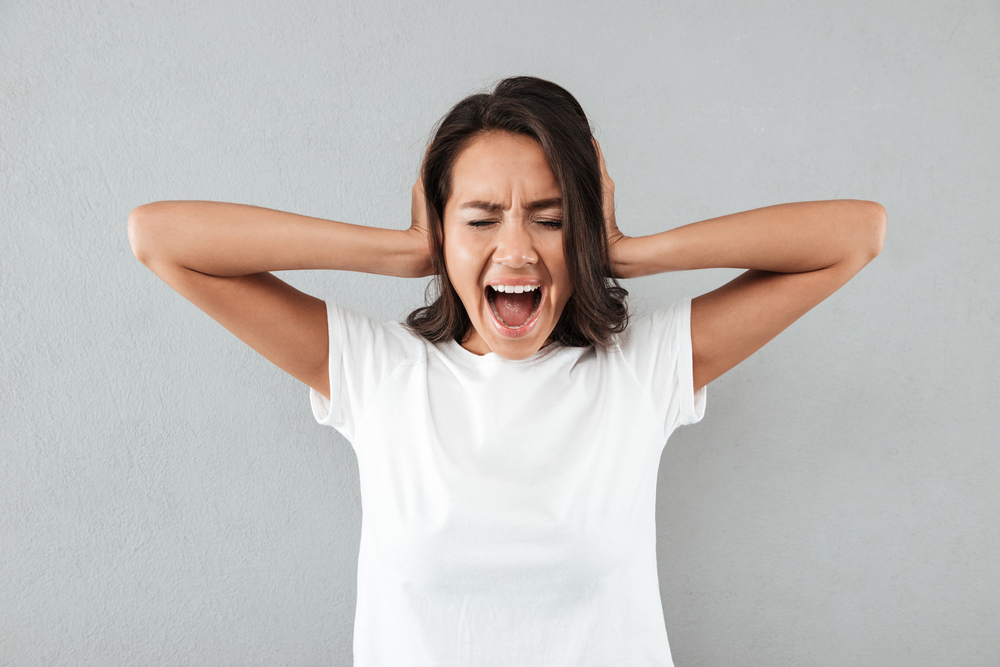Contents:
- Medical Video: Schizophrenia Is a Mystery, But This Discovery Might Change Things
- How old are the symptoms of schizophrenia that first appeared?
- Getting older, symptoms of schizophrenia can get worse
- Going to a psychiatrist is the key
Medical Video: Schizophrenia Is a Mystery, But This Discovery Might Change Things
Communities in various parts of the world, including Indonesia, are still haunted by the negative stigma about schizophrenia. Until now, they consider schizophrenia to be a dangerous, contagious and damned disease, so it needs to be shunned. In fact, this stigma is wrong, which makes treatment of schizophrenia stunted. Health experts agree that this actually makes the symptoms of schizophrenia worsen over time. How can?
How old are the symptoms of schizophrenia that first appeared?
Schizophrenia can be experienced by anyone, both men and women. According to the Brain and Behavior Research Foundation, the symptoms of schizophrenia in the form of hallucinations and delusions usually appear first at ages 16 to 30 years.
Although it often appears in adolescence, schizophrenia in children is also not impossible. But unfortunately, parents find it difficult to distinguish between the typical imagination of children and which hallucinations are characteristic of schizophrenia and are often overlooked.
Likewise in adolescents, signs of schizophrenia are often difficult to detect. This is because schizophrenia in adolescents is usually characterized by sleep disturbances, irritability, and impairment. All these behaviors are very common in adolescents who have just entered puberty.
Getting older, symptoms of schizophrenia can get worse
Getting older, our bodies will experience many changes. Starting from a decrease in physical, cognitive, mental, and social. This is a sign that you are more susceptible to various physical and mental illnesses.
The good news, growing age will not make the symptoms of schizophrenia worse. Precisely with the right handling of the psychiatrist and the support of the closest person, you can control the symptoms well.
However, it should be noted that this does not mean you can relax even though you have schizophrenia, you know. Because the symptoms of schizophrenia may develop and get worse if you continue to leave them without treatment.
Every episode or psychotic stage experienced by a person with schizophrenia can cause damage to the brain if it is not treated quickly. Especially if your lifestyle is not healthy, such as being used to smoking, drinking alcohol, hypercortisolemia, and lack of movement.
According to a study in the Journal of Psychoses and Related Disorders, an unhealthy lifestyle can reduce the volume of gray matter (gray matter) in the brain. The less gray matter in the brain, the more difficult it is for you to calm down and trigger symptoms of schizophrenia. Over time, you may experience more severe psychosis, namely delusions, hallucinations, to hear intangible voices.
On the other hand, a geriatric neuropsychiatrist from the University of California San Diego, Dilip Jeste, MD, actually revealed the opposite fact. Symptoms of schizophrenia tend to improve with age. Through his research involving 1,500 middle-aged and elderly participants with schizophrenia, he found that participants' psychosocial functions actually increased.
The older, participants claimed to be more able to control the symptoms of schizophrenia that often recur. They are even more obedient to the mental health care given because they want to live a normal and healthy life. As a result, participants with schizophrenia became more confident and had a better quality of life.
Going to a psychiatrist is the key
So in short, the severity of symptoms of schizophrenia depends on your efforts to get mental treatment as soon as possible. The faster psychological therapy is carried out, the more symptoms of schizophrenia can be controlled. That way, your life is no longer bothered by schizophrenia in old age.
The first step you should do is visit a certified psychiatrist as soon as possible. Usually, you will be given cognitive and behavioral therapy (CBT) for six months to improve your social functioning and help control symptoms of schizophrenia that often recur.
You might also be given a medication for schizophrenia to drink regularly, if indeed the symptoms often recur at certain times. No less important, ask for the support of your closest parents and relatives to help you through these difficult times.














